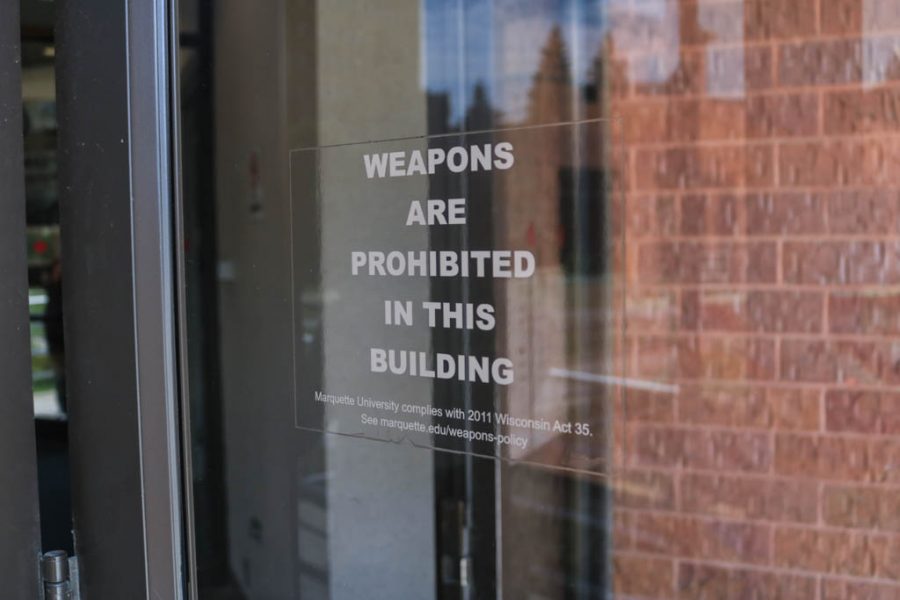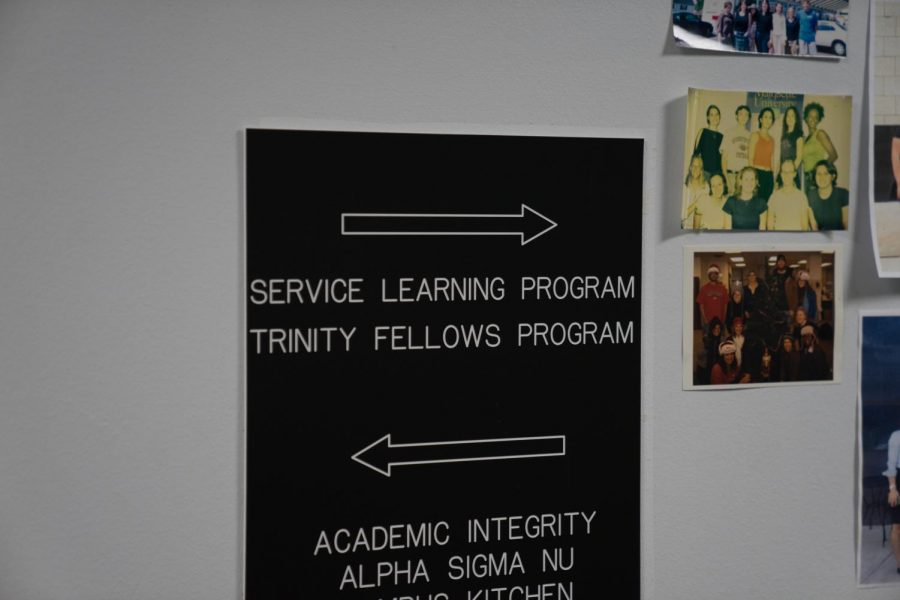71 percent of grads made correct decision attending Marquette, survey finds
 Jessica Ehlen, a 2009 alumna, chose to attend Marquette to become a nurse. Today, she is realizing her goal and pursuing a career at Aurora Sinai Medical Center as a registered nurse on a medical floor.
Jessica Ehlen, a 2009 alumna, chose to attend Marquette to become a nurse. Today, she is realizing her goal and pursuing a career at Aurora Sinai Medical Center as a registered nurse on a medical floor.
Marquette administers the Senior Survey to students like Ehlen and her graduating class via e-mail each April to evaluate various aspects of the Marquette experience.
In September, the results of 2009’s 41-question Senior Survey were released. The survey aims to gauge the senior class’ overall satisfaction with its Marquette education, according to Jon Dooley, senior associate dean of student development.
To measure this, the survey asks questions that explore the effect Marquette had on the senior class’ education, examine graduates’ plans for the future and assess their participation in co-curricular learning, according to the survey.
Of the 1,277 seniors in the 2009 graduating class, 579 completed the survey, a response rate of 45 percent, according to survey data.
“The response rate is about what we expect,” Dooley said. “We are pleased with the rate that we get, because it portrays an accurate picture of the students and their ideas.”
High and low points of the survey were found in student satisfaction and ethnic diversity, respectively.
The majority of the graduating class of 2009 apparently made the right decision to enroll at Marquette, with 71 percent responding with “yes” or “absolutely yes” when asked if they would attend Marquette again if they needed to start over. Sixty-three percent rated Marquette’s ethnic diversity positively.
Regarding seniors’ future plans, a larger percentage of seniors graduating in 2009 applied to graduate school (36 percent) than in 2008 (32 percent). Additionally, the number of seniors who applied for full-time service positions, such as jobs in the Peace Corps and other volunteer organizations, doubled from 8 percent in 2008 to 16 percent in 2009.
This year, new questions designed to estimate the results of institutional learning on the graduating seniors were included in the survey. Institutional learning refers to the stated learning outcomes of Marquette University, which include: the use of critical thinking and reflection; the power to change oneself, others and the community; the ability to communicate effectively; the capacity to exercise just, responsible and competent leadership; the desire to seek a comprehensive vision of life; and the faculty to understand global social justice issues.
In five out of six of these areas, over half of the students stated that they felt “markedly improved” after completing their Marquette education. However, regarding understanding global justice issues, only 36 percent of respondents said their understanding was “markedly improved.”
According to Margaret Bloom, vice provost for undergraduate programs and teaching, the Senior Survey is a part of the comprehensive student learning assessment system at Marquette. Bloom said the survey is used to identify discrepancies in the curriculum and correct them through various programs and initiatives.
The survey also discovered that 87 percent of the graduating class of 2009 was involved in a student organization or community service.
Concerning co-curricular learning, the survey found the greatest influence resulted from studying abroad and internship experiences that provided longer intervals of learning and concentration.
Of those that studied abroad, 83 percent reported their educational experience was enhanced markedly, while 80 percent of those participating in internships said the same.




